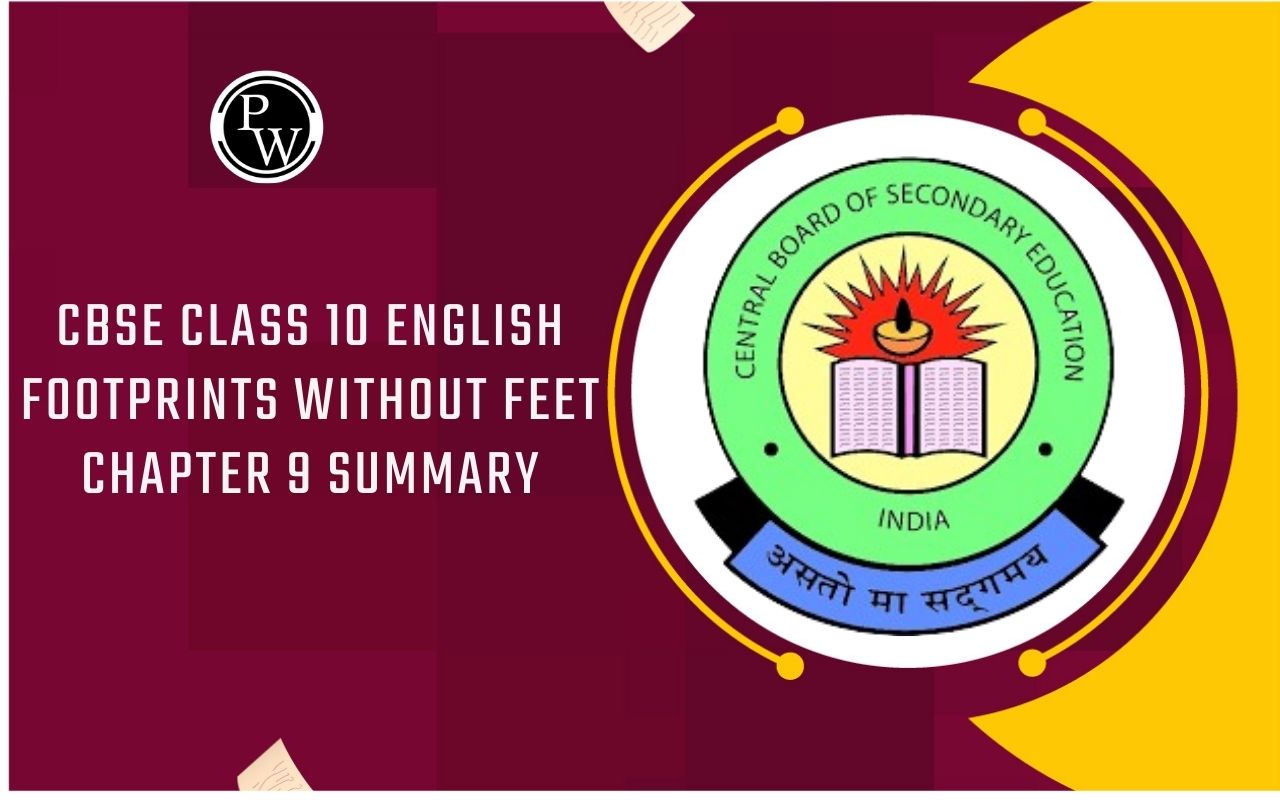
CBSE Important Questions for Class 10 Science Chapter 16: Here are the CBSE Important Questions for Class 10 Science Chapter 16 which focuses on Management of Natural Resources. This chapter emphasizes the sustainable use of resources, the importance of conservation and the role of individuals and communities in protecting the environment.
The important questions cover important topics such as the various types of natural resources, methods of resource management and the impact of human activities on the environment. By studying these questions students can enhance their understanding of environmental issues and prepare effectively for their examinations, ensuring they grasp the critical concepts related to the management and conservation of natural resources.CBSE Important Questions for Class 10 Science Chapter 16 Overview
These questions has been created by subject experts of Physics Wallah for CBSE Important Questions for Class 10 Science Chapter 16 which focuses on Management of Natural Resources. By solving these questions students can enhance their understanding of crucial environmental issues and prepare comprehensively for their exams.CBSE Important Questions for Class 10 Science Chapter 16 PDF
The PDF link for CBSE Important Questions for Class 10 Science Chapter 16 Management of Natural Resources is available below. Accessing the PDF will provide a valuable resource for study and revision, ensuring that students are well-prepared to tackle related topics in their assessments.CBSE Important Questions for Class 10 Science Chapter 16 PDF
CBSE Important Questions for Class 10 Science Chapter 16 Management of Natural Resources
Here we have provided CBSE Important Questions for Class 10 Science Chapter 16 Management of Natural Resources-Question 1. Why is it important to manage our resources? List two reasons to support this statement.
Answer: Managing our natural resources is crucial because (i) Earth's resources are finite, and (ii) proper management ensures that these resources are distributed fairly among all people.
Question 2. Identify two items that can be easily recycled but are often discarded in the trash.
Answer: Newspapers and tin cans are two examples of items that can be easily recycled but are commonly thrown away.
Question 3. How do the benefits of exploiting natural resources for immediate gains differ from those of managing resources for the long term?
Answer: Exploiting resources for short-term gains helps meet immediate human needs and addresses current demands, benefiting only the present generation. In contrast, managing resources with a long-term view aims to meet the needs of future generations and promotes sustainable use of resources.
Question 4. Why is equitable distribution of resources important in society? Name two factors that hinder such distribution.
Answer: Equitable distribution of natural resources is essential to ensure that all people, not just the wealthy and powerful, have access to them. Two factors that oppose fair distribution are:
Industrialization Profit-driven motives of businesses that seek to maximize their gains from these resources.Question 5. Why is reusing materials considered better than recycling them?
Answer: Reusing is preferable to recycling because it does not require any energy, unlike recycling processes. For instance, used envelopes can be reused for taking notes instead of being recycled.
Question 6. What is sustainable development, and what are its two main objectives?
Answer: Sustainable development involves managing existing resources and developing new methods for utilizing natural resources to meet evolving human needs while preserving these resources for future generations. The two main objectives are:
To decrease reliance on conventional energy sources and promote non-conventional sources of energy. To innovate new technologies and conserve natural resources.Question 7. (a) Why is careful management of our resources necessary?
(b) Why does the management of natural resources require a long-term perspective?
Answer:
(a) Earth's resources are limited, and the demand for them continues to rise due to population growth. Therefore, it is vital to manage, conserve, and replenish our natural resources to prevent waste. (b) A long-term perspective is essential in resource management to ensure that resources are sustainable and available for future generations, rather than being exploited for short-term benefits.Question 8. What is meant by “sustainable management”? Why is reusing materials considered more beneficial than recycling?
Answer: Sustainable management refers to the responsible use of natural resources to meet the needs of the current generation while ensuring their availability for future generations. Reusing is seen as more advantageous than recycling because it minimizes waste and conserves the energy that would otherwise be used in recycling processes.
Question 9. List four activities that can help reduce personal consumption of natural resources, based on the 3R approach.
Answer:
- Using public transportation instead of private vehicles to reduce fossil fuel consumption.
- Reusing water from washing vegetables to irrigate plants in the garden, thus conserving water.
- Repairing and reusing old electronics like mobile phones and televisions to decrease the demand for new resources.
- Choosing furniture made from metals or fabrics over wood to reduce deforestation for timber.
Question 10. Why is it important to manage natural resources sustainably? Which is better to practice: reuse or recycle? Why? (AI 2015)
Answer:
Sustainable management of natural resources is important because: Earth’s resources are limited, and with the growing human population, the demand for these resources keeps increasing. Proper management ensures that resources are used wisely, meeting today’s needs while preserving them for future generations. It promotes a long-term view and prevents the exploitation of resources for quick gains. I believe reusing is better than recycling because reusing requires no energy, while recycling does need some energy.Question 11. What are the three Rs (3Rs) to protect the environment? How can we implement them in school? (Foreign 2015)
Answer:
The 3Rs to protect the environment are Reduce , Reuse , and Recycle . Here’s how we can practice them in school:Reduce: Turn off lights and fans when not in use, avoid wasting food, and close leaking taps.
Recycle: Sort waste in classrooms and put them in separate bins for proper disposal.
Reuse: Instead of throwing away old books, give them to younger students who can use them.
Question 12. List two benefits of managing natural resources sustainably. Which is better: reuse or recycle? Why? (Foreign 2015)
Answer:
Two benefits of sustainable management of natural resources are: It prevents the wasteful use of resources. It ensures that resources benefit both present and future generations. Between reuse and recycling, I think reuse is better because it helps save the energy that would be needed for recycling.Question 13. How can we help reduce the waste disposal problem? Suggest three methods. (Delhi 2019)
Answer:
We can reduce the waste disposal problem in our daily lives by following these methods:Reduce: Use fewer resources, like turning off lights and taps, and using both sides of paper. We should also avoid wasting food.
Recycle: Many items like plastic, paper, and glass can be recycled instead of thrown away. We should sort our waste into biodegradable and non-biodegradable categories and send them to the right places for recycling or composting.
Reuse: Use items multiple times instead of discarding them. For example, we can store things in empty plastic bottles or repair old devices instead of buying new ones.
Question 14. Consider the following criticisms often raised against new projects: I.
Displacement of local people without compensation. II. Large amounts of public money wasted with no benefits. III. Deforestation and loss of biodiversity.Which criticisms are specifically about large dams? (2020)
Answer:
(d) I, II, and III.Question 15. What is Reni village in Garhwal known for?
(a) Monoculture of pine, teak, and eucalyptus (b) Chipko movement (c) Extensive biodiversity (d) Local people's participation in forest management. (2020)Answer:
(b) Chipko movement Question 16. What is the main negative effect of monoculture in forests? (a) It destroys biodiversity. (b) It affects local people’s needs. (c) It impacts industries. (d) It affects the forest department. (2020)Answer:
(a) It destroys biodiversity.Question 16. What does wildlife mean? Why is it important to us? (Delhi 2017)
Answer:
Wildlife refers to all living things (plants and animals) that exist in their natural habitats. It is important because it helps maintain ecological balance and provides various resources like food, materials, and medicine. Wildlife also contributes to tourism and recreation, which can generate income.Question 17. Why is managing forests and wildlife resources a challenging task? Give two reasons. (Delhi 2017)
Answer:
Managing forests and wildlife is challenging because there are many people involved, including: Local people who depend on forest products for their daily needs. Industrialists who utilize forest resources and conservationists who want to protect them. It is hard to satisfy everyone’s interests because: Forest resources are declining due to industrial growth and urban development. Some people aim to profit from these resources.Benefits of Practicing CBSE Important Questions for Class 10 Science Chapter 16
Familiarity with Exam Pattern : Practicing important questions helps students become familiar with the exam pattern and question formats, reducing anxiety on exam day.
Identification of Weak Areas : By working through important questions, students can identify areas where they may need further study or clarification, allowing them to focus their revision effectively.
Time Management Skills : Regular practice helps students develop better time management skills, enabling them to complete their exams within the allotted time.
Boosted Confidence : Successfully answering important questions builds confidence, making students more prepared and assured in their knowledge as they approach the exam.
Application of Knowledge : Important questions often require students to apply theoretical knowledge to practical situations, enhancing their ability to relate science to real-world contexts.
Preparation for Higher Studies : Mastering the concepts in Chapter 16 lays a strong foundation for further studies in physics and other scientific disciplines.
CBSE Important Questions for Class 10 Science Chapter 16 FAQs
What are natural resources?
Why is sustainable management of natural resources important?
What is the difference between renewable and non-renewable resources?
What is the role of government in natural resource management?










